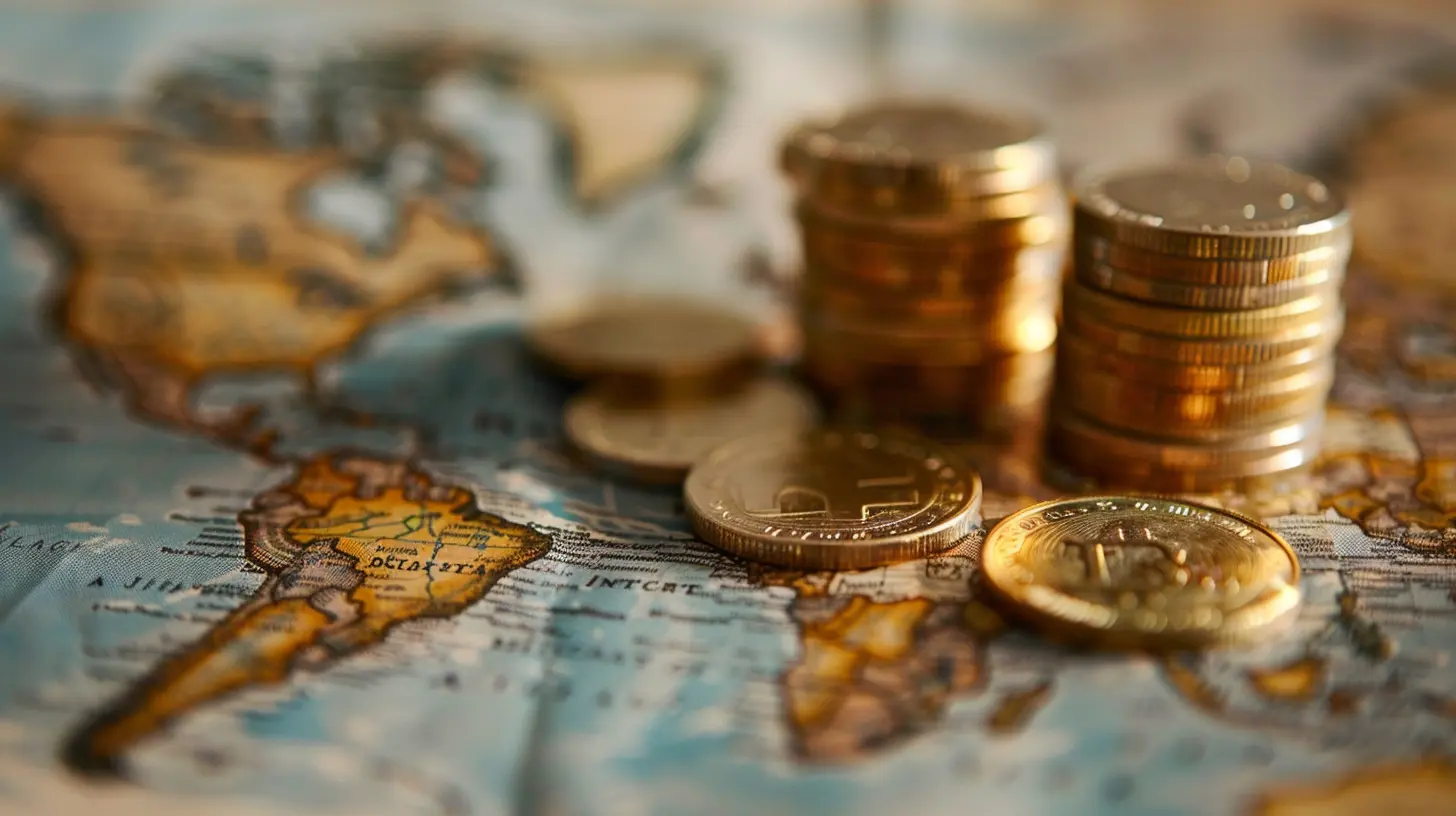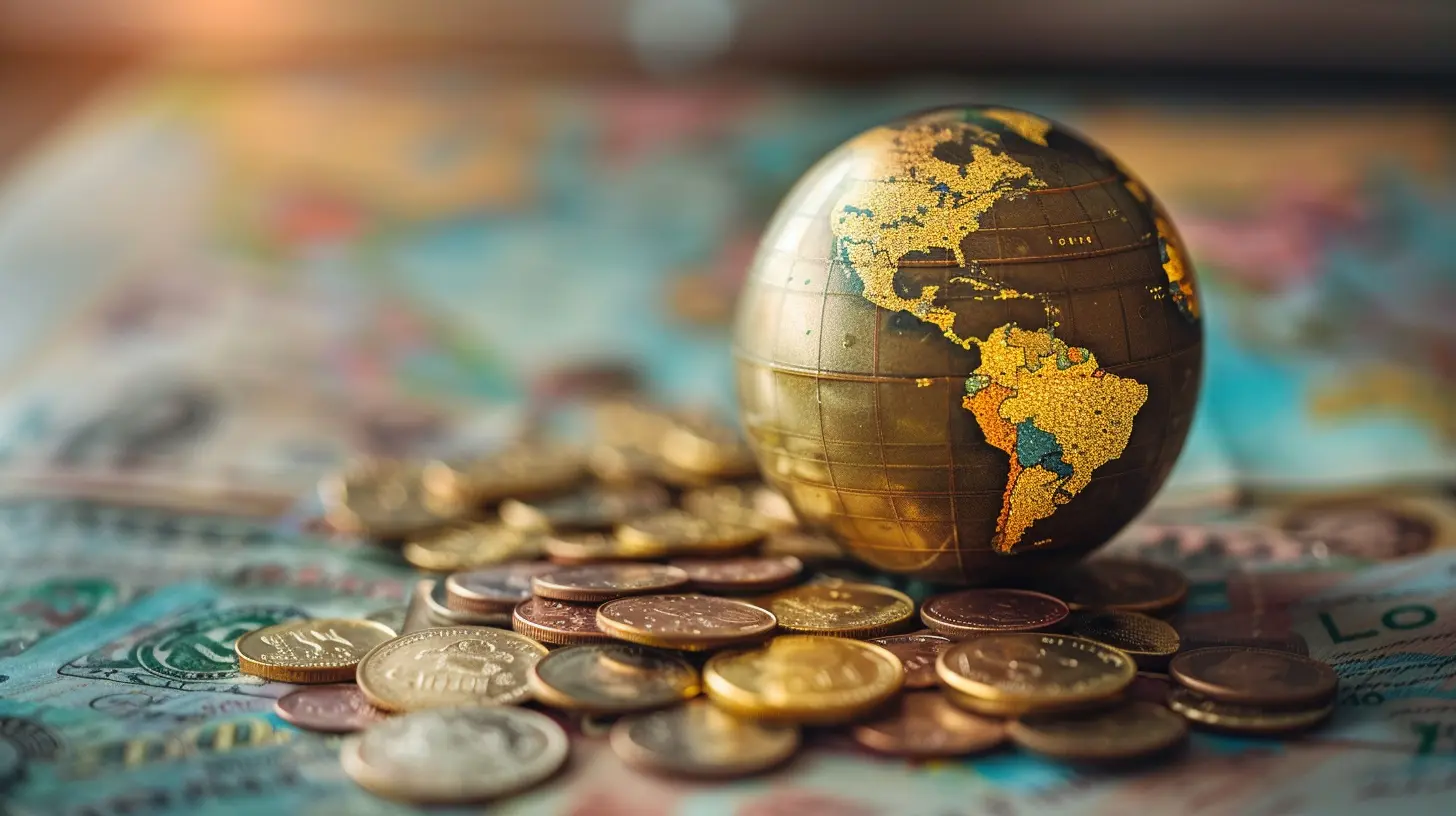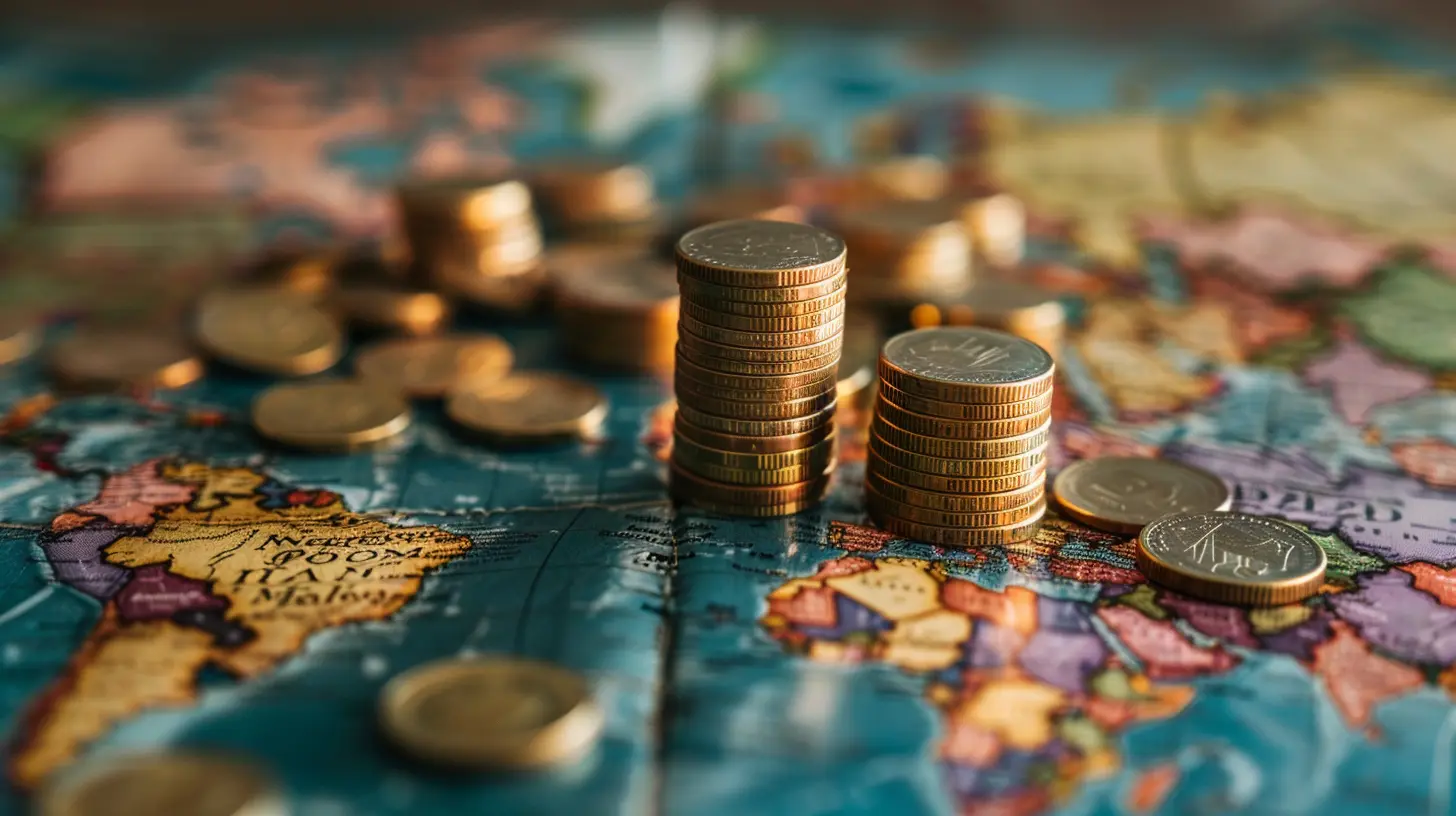Understanding the Impact of Inflation on Global Trade
4 June 2025
Let’s cut right to the chase—inflation is like that awkward cousin at family gatherings. It shows up uninvited, steals the spotlight, and suddenly everyone’s talking about it. It messes with everything, from the cost of your morning coffee to the price of your favorite imported gadgets. But inflation doesn’t stop there; it’s got global trade in a headlock, and we’re all feeling the squeeze.
If you’ve ever wondered how your $5 latte morphed into a $7 monstrosity or why imported avocados now cost an arm and a leg, you’re in the right place. In this article, we’re going to break it all down—what inflation is, how it impacts global trade, and why we should all care. Don’t worry, I promise we’ll keep it easy to understand and sprinkle in some humor along the way. Sound good? Cool, let’s jump in! 
What Exactly Is Inflation?
Alright, first off, what is inflation? Think of inflation as the sneaky gnome that makes your money worth less over time. It’s the gradual increase in prices of goods and services while your dollar (or euro, yen, rupee—pick your poison) buys less than it used to. It’s not your imagination; your paycheck really does stretch less these days.In simple terms, inflation means prices go up. Today’s "average price" for a burger might be $10, but in five years? That same burger might cost you $15—without any extra ketchup, I might add. 
Inflation and Global Trade: A Tangled Web
Now, let’s toss global trade into the mix. Think of global trade as a massive international pizza party, where each country contributes its own topping. Italy brings the mozzarella, Brazil supplies the tomatoes, and China delivers the pepperoni. Inflation, in this scenario, is like someone jacking up the price of the cheese—it throws the entire pizza-making process out of whack!Here’s the deal: inflation impacts global trade in three major ways:
1. Currency Exchange Rates Go Haywire
When inflation hits, your country’s currency might lose value compared to others. Imagine you’re holding euros and planning a vacation to the U.S. If inflation makes the euro weaker, suddenly your euros don’t buy as many dollars. The same thing happens in trade. Countries with weaker currencies face higher import costs, while their exports might look like a bargain bin deal to other nations.But wait, you might think, “Isn’t that a good thing for exports?” Sure, but it’s not all sunshine and rainbows. If the cost of producing those exports rises because of inflation (hello, higher wages and material costs), any competitive edge is quickly chucked out the window.
2. Shipping Costs Soar
You can’t talk about global trade without mentioning shipping. It’s the lifeblood of international commerce. But inflation doesn’t ignore this sector either. Higher fuel prices, rising labor demands, and increased operational costs mean that shipping fees climb higher than a cat stuck in a tree.For example, if it now costs an arm and half a leg to ship avocados from Mexico to Canada, you can bet your guacamole bowl will feel the impact. And don’t even get me started on supply chain disruptions! Inflation is like the annoying roommate who keeps breaking the Wi-Fi—you just can’t catch a break.
3. Consumer Confidence Tanks
Inflation doesn’t just empty wallets—it messes with your head, too. When prices skyrocket, consumers (you, me, and everyone else) tighten their belts and rethink their spending. That expensive imported Italian wine? Forget it—boxed wine from the local grocery store will do.This sudden shift in consumer behavior ripples up the chain, affecting demand for imported goods and, ultimately, global trade patterns. If people aren’t buying, businesses aren’t selling, and trade takes a hit. It’s a vicious cycle, isn’t it? 
Winners and Losers in the Game of Inflation
Ah, the age-old question: Does anyone actually win when inflation shows up to ruin the party? Well, yes and no.The Winners
Surprisingly, exporters in countries with weaker currencies can benefit—at least temporarily. Their goods become more affordable to other nations, leading to a potential boom in sales. Think of it like finding a clearance sale while shopping online.Another winner? Commodity-exporting nations. When global inflation drives up prices for oil, gas, and agricultural products, countries that export these essential goods tend to rake in the cash.
The Losers
Unfortunately, there are plenty of losers in this game. Importers typically bear the brunt of inflation’s wrath. Higher import costs mean thinner profit margins for businesses and more expensive products for consumers.Emerging economies also get hit hard. They may struggle with debt repayments if their currency loses value against those hefty loans they took out in dollars. It’s like owing a friend $20, but now that $20 feels more like $50 because your paycheck shrank. 
Inflation and Trade Wars: A Recipe for Chaos
As if inflation wasn’t bad enough, let’s throw trade wars into the mix. When countries slap tariffs on each other in a game of economic chicken, inflation makes things worse. Tariffs = higher prices, and inflation just amplifies the pain.Imagine two kids fighting over who gets the last slice of cake. Instead of sharing, they both decide to add extra frosting (tariffs) to the cake to make it "better." Guess what? Now, no one wants the cake because it’s overpriced and gross. That’s global trade during inflation-fueled trade wars in a nutshell.
What Does All This Mean for You and Me?
Let’s bring it back to the local level, shall we? How does inflation’s impact on global trade actually affect your daily life?- Higher Prices at the Store: Imported goods cost more. So, that fancy French cheese or Japanese gadget? Yeah, it’s gonna put a bigger dent in your wallet.
- Fewer Product Options: If retailers can’t afford to import as many products, you might find your options shrinking. Say goodbye to five brands of hummus; you’re now stuck with just one.
- Strained Wallets: Inflation coupled with global trade disruptions means we’re all tightening our belts. Except now the belt costs more, too.
Can We Do Anything About It?
Short answer: Not much, unless you’re a central banker with a magic wand. Long answer: Governments and central banks attempt to control inflation by tweaking interest rates, adjusting fiscal policies, and strengthening economies.As consumers, our best bet is to adapt. Look for alternatives, support local businesses, and keep an eye on the news to understand what’s going on. It’s all about riding out the storm without losing too much.
Final Thoughts
Inflation might be a pain in the you-know-what, but understanding its impact on global trade can help you see the bigger picture. It’s not just about higher prices—it’s about how interconnected the world really is. When one country sneezes (or prints more money), the rest of us catch the economic cold.The next time you see your grocery bill climb higher than expected, take a moment to reflect on the complex web of inflation and global trade. Then pour yourself a glass of that boxed wine and toast to surviving another day in this wild economic jungle. Cheers!
all images in this post were generated using AI tools
Category:
Global BusinessAuthor:

Caden Robinson
Discussion
rate this article
2 comments
Anisa McCord
Inflation affects pricing, supply chains, and global trade dynamics significantly.
June 17, 2025 at 4:08 AM

Caden Robinson
Thank you for your insightful comment! Indeed, inflation plays a crucial role in shaping pricing, supply chains, and global trade dynamics.
Gavin Wilcox
This article provides a clear overview of how inflation affects global trade dynamics, highlighting essential factors businesses must consider to navigate these challenging economic conditions effectively.
June 4, 2025 at 11:37 AM

Caden Robinson
Thank you for your thoughtful comment! I'm glad you found the article informative and helpful in navigating these complexities.


